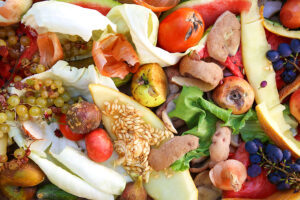Ethiopian study demonstrates commercial potential of fruit-waste briquettes

Conducted by Eldana Zeleke Gebremariyam, Eyasu Derbew Demeke, Wondimagegn Mamo Mengistu, and Yedilfana Setarge Mekonnen and published in Scientific Reports (2025), the research examined briquettes made from avocado and banana peels collected from local juice production facilities, blended with bagasse sourced from the Wonji Sugar Factory.
The study aimed to assess the feasibility of converting organic waste into energy-dense briquettes that could serve as a reliable alternative to conventional biomass fuels.
The researchers conducted a full proximate analysis and measured calorific value, bulk density, combustion characteristics, and emissions to evaluate fuel performance.
Results showed that the briquettes had favourable fuel properties. A formulation containing 40% avocado peel and 60% bagasse achieved a calorific value of 29.93 MJ/kg, demonstrating energy output comparable to or exceeding many conventional biomass fuels.
Moisture content was low, volatile matter high, and ash and fixed carbon levels were suitable for efficient combustion.
Practical combustion tests revealed ignition times between 1.39 and 2 minutes, with burn durations ranging from 29.1 to 43.41 minutes, providing long-lasting energy release suitable for commercial and institutional applications.
Emissions were generally low: carbon monoxide ranged from 1.8 to 14.5 ppm, within internationally recognised limits, while nitrogen oxides fell within expected ranges. Elevated hydrocarbons were observed in only a few samples, linked to incomplete combustion.
By converting fruit waste and bagasse into briquettes, companies can reduce landfill use, mitigate greenhouse gas emissions, and generate a marketable fuel product.
This approach aligns with circular economy principles, creating value from underutilised waste streams while providing cost-effective, clean energy.
For businesses in agribusiness, energy distribution, and waste management, the findings highlight a practical opportunity to supply urban households, institutional kitchens, and small industrial users with reliable, sustainable fuel.
The research also suggests potential for scaling production, providing both economic and environmental benefits.

















